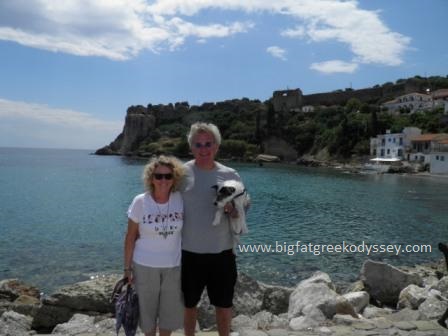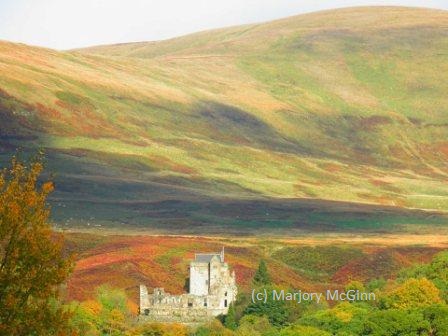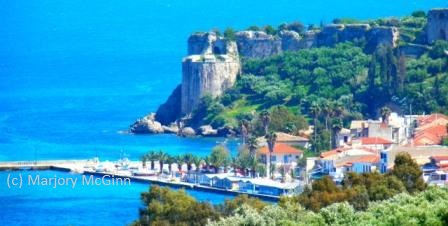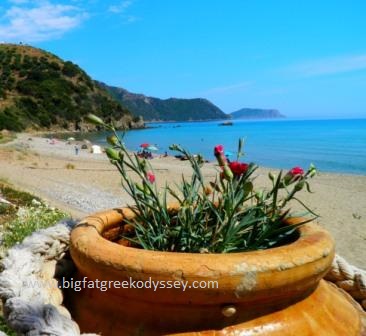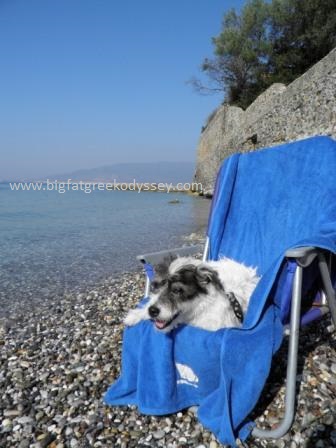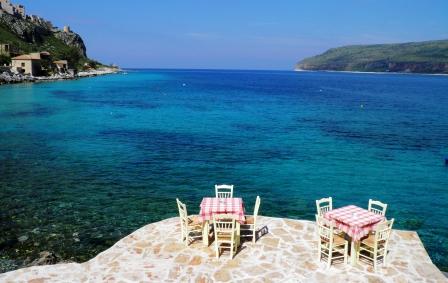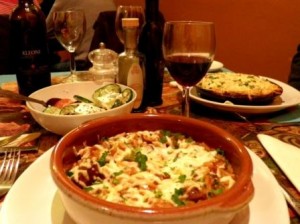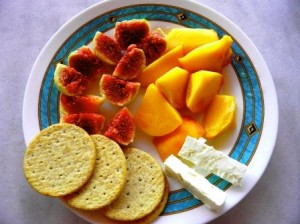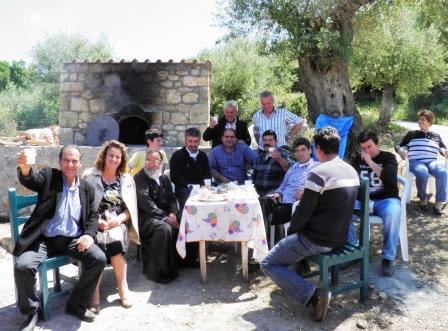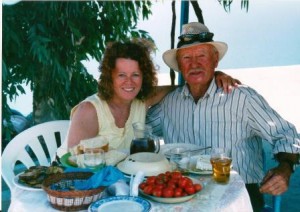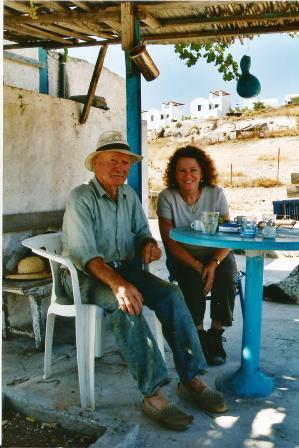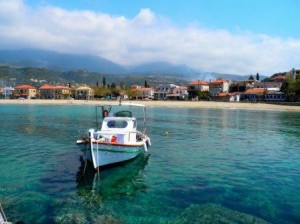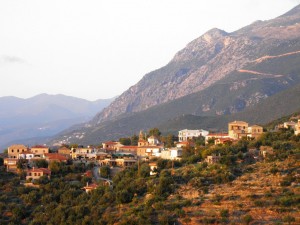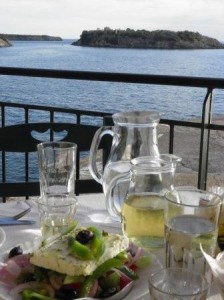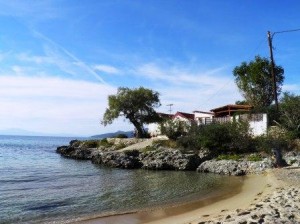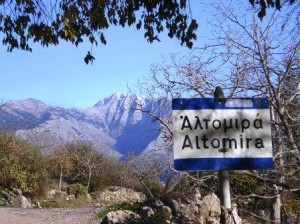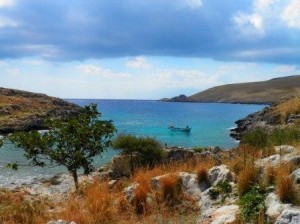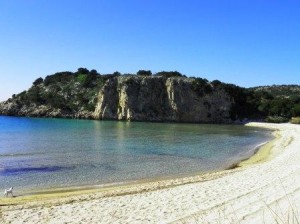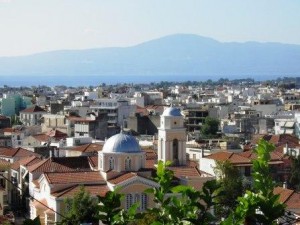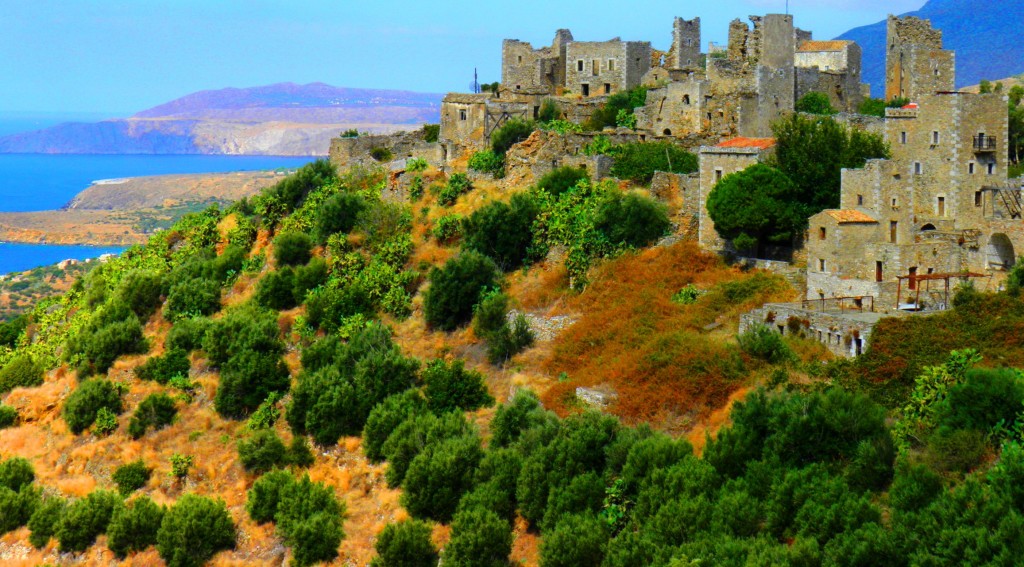BEFORE Jim and I set off on our mid-life adventure to Greece in 2010, a friend commented on our plan with a yearning look in his eyes. “I can only wonder what it must be like to divest yourself of everything and take off into the wild blue yonder.”
As a successful professional with a lovely house and two young children, his comment was motivated mainly by a wish to be free of nine-to-five pressure for a while, nothing more complicated than that.
But many other people said very similar things as we moved closer to our departure date. One professional guy, stuck in a difficult job and with children to support, asked me rather sadly: “Where is our mid-life odyssey? When can we do what you’re doing?”
I felt for his predicament. “You can do it one day if you really want it badly enough” was all I could offer him. But it did become our kind of stock answer to these unexpected comments, because that statement had been true for us.
We had put in a huge amount of planning and time into the proposed odyssey, putting our personal possessions in storage, renting out our house in Scotland, as well as all the nagging issues involved in leaving the UK for a while. Our to-do list before we left was four A4 pages long. But not once did we doubt we were doing the right thing, even though Greece was moving into the first stages of its economic crisis.
We wanted it badly enough, but we didn’t seek out the odyssey because we hated our lives, or where we were living, which was in fact a very picturesque village outside Stirling. We just wanted to live for a while under a “wandering star”. And who doesn’t?
Sadly, the subtext to a lot of the comments we heard over and over again were that many other Brits were desperate for an overseas odyssey, or in some cases a permanent move abroad, because they were innately unhappy and they believed life would be happier if only they were some place else.
But is this true? Can your life be happier just because you change location, particularly to a warm sunny country like Greece, for example? I don’t think so. It will be different, for sure, but not necessarily happier, or better.
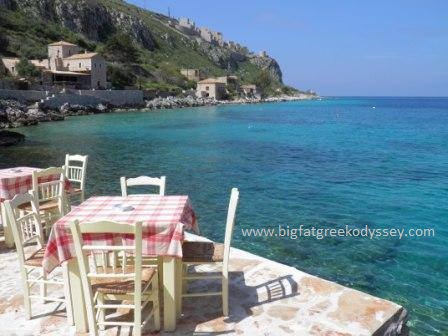
A taverna by the water at Limeni Bay, the Mani. The casual Greek lifestyle has a massive pull for foreigners
Our years in Greece brought us in contact with a lot of British, American and other expatriates, who told us they came to live in Greece to ‘escape’ their old, humdrum lives. Many of them obviously thrived in the gorgeous climate with a better lifestyle than they had back home, particularly the Brits, as if they were permanently on holiday, and no-one should blame them for wanting easier lives and sun and sea.
Many confessed to being happier in their new location, and said it was the best move they had ever made. However, those who sought Greece for a particular reason rather than the expectation of being happier, were probably the most successful resettlers, especially those who managed to assimilate well.
The American artist and writer Pamela Jane Rogers, who has written a fascinating memoir Greekscapes: Journeys With An Artist, left America after the break-up of her marriage and ended up settling on Poros island. She has been living there for 26 years. Mostly, she came to Greece for its beauty and as an inspiration for her painting. She has built up a great reputation for her work worldwide and is thriving in Greece. www.pamelajanerogers.com
The Scottish crime writer Paul Johnson has lived in Greece for some years, which has been the inspiration for many of his novels. Many other writers and artists also find that Greece provides a sunny muse and have no intention of leaving, despite the crisis.
But a move to Greece is not always the answer to everything. Some British expats told us that although their lifestyle was easier, they weren’t as happy as they thought they’d be. The same problems that plagued them back home, plague them in Greece, as well as the fact that in Greece there is no financial safety net, a poorer health system, and their extended families are not around for support.
Many of those who escaped to Greece have ultimately returned home. One British expat I interviewed in 2010 for a freelance story about Greece had gone there with her husband where they built their ‘dream’ home near Kalamata, only it turned out to be anything but. It was planned as a retirement home, but after a heartbreaking series of bungles with builders, bureaucracy and other disasters, they sold up and moved back the UK, and have no further plans to pursue a dream life abroad.
Perhaps it shows that you can’t ramp up happiness just by changing location. It’s something deeper, more intrinsic. There’s a line in a poem by famous Greek poet Konstantinos Kavafis which sums it up. It loosely translates as: “You can change your skies but not your soul.”
To a great extent that’s true. The old life will follow you about wherever you go. A broken heart will be a broken heart wherever you are. A failure to relate with others, or to feel fulfilled on many levels, won’t change just because you go to Greece, or another sunny location.
The Greek/American travel writer Matt Barrett, who has an informative and popular Greek travel website www.greecetravel.com also had similar thoughts recently on his blog, written while on the island of Lesvos. In many ways he inspired me to write this piece.
Having lived for many years in Greece, he made this astute comment about those who want to leave their old life and move there: “The truth is that you only think you want to throw it all away and move to Greece because you are not taking the time to appreciate the things you have that you would absolutely miss if you did … If you are happy, with yourself then it does not matter if you are in Greece or Nebraska.”
The search for happiness is only part of it, of course. People are seeking different things when they go to Greece, and sometimes it’s not all that straightforward. It was one of the themes of my second travel memoir, Homer’s Where the Heart Is, after a Greek businessman had posed a question to me at a village celebration in the Mani. Apart from sun and sea, he asked, “what is it you (foreigners) seek to find in our country that you cannot find in your own?”
It’s not an easy question to answer and it is one of the things I thought about a great deal while in Greece, the illusive thing we are seeking there, and I am not sure I’ve really found it yet. Or that it can be found.
We went to the southern Peloponnese for a year and ended up staying for four. Although we never went seeking greater happiness and contentment I think we were unintentionally happier overall, despite the fact that not all our experiences were positive. We didn’t always get things right. We had tough times in the crisis, like everyone. We found it hard adjusting to another culture, and in our case a very traditional rural culture in the hillside village of Megali Mantineia. We found it tough renting abroad, without all the comforts and security we take for granted in Britain.
But in the end, we went without any illusions or expectations and we were constantly surprised and delighted by everything we found, helped in no small part by the wonderful Greeks we met (and occasionally expats, too), who shared their lives and their stories. Because we never sought happiness in a different location, I believe we found it and that may be the only thing I learnt after four years in Greece.
The place really isn’t the thing. It doesn’t set the agenda I believe.
The expat I mentioned earlier who built her dream home near Kalamata later told me that when she returned to the UK she realised perhaps for the first time what positive things the country had to offer her. So her story really did have a happy ending but not in the way she expected.
Of course, I’m not saying, don’t go abroad to search for the dream life, or have a long adventure – especially in warm and welcoming Greece, and even though it is still in crisis. But don’t go expecting it will change your life forever. As Kavafis indicated, it may only change your ‘sky’ and nothing more – unless that’s really all you want.
Travel Memoirs
TO read more about living in Greece during the crisis in the southern Peloponnese, read my travel memoirs, Things Can Only Get Feta, Homer’s Where The Heart Is and A Scorpion in the Lemon Tree.
The books are available on all Amazon’s international sites, Barnes and Noble and also on the Book Depository www.bookdepository.com (with free overseas postage). On the website www.bigfatgreekodyssey.com you will also find a books page with other information about the books.
New Book
Marjory has just published a debut novel, set in southern Greece, called A Saint For The Summer. This is a contemporary tale with a narrative thread back to the Second World War, a “tale of heroism, faith and love” described by a recent reviewer as “entertaining, enthralling”. For more information, see the books page link, above.
The book is available on all Amazon sites.
If you have liked my books please think of adding a small review on Amazon sites which is always very welcome. Thanks for calling by. x
You can also find me on Twitter @fatgreekodyssey
And my books page on Facebook www.facebook.com/ThingsCanOnlyGetFeta
© All rights reserved. All text and photographs copyright of the authors 2010 to 2018. No content/text or photographs may be copied from the blog without the prior written permission of the authors. This applies to all posts on the blog
